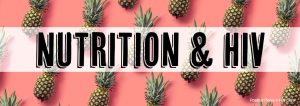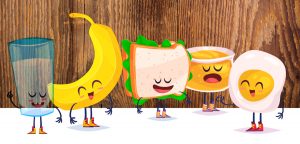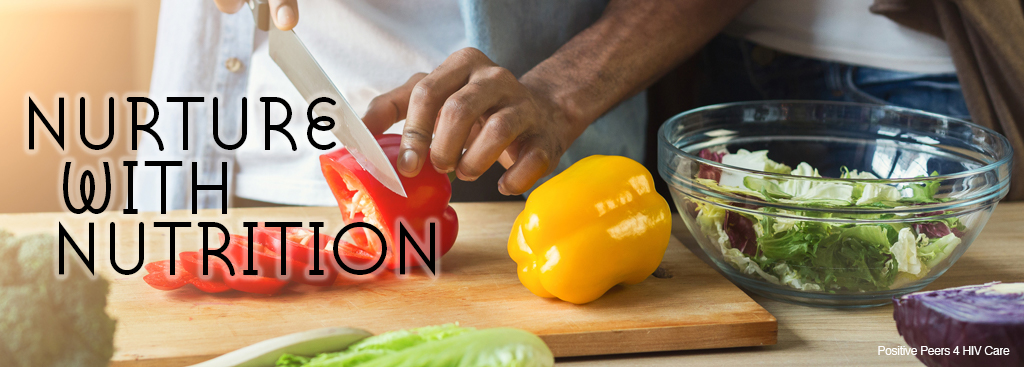
By: Ann Avery, Infectious Disease Physician at Metrohealth Medical Center
If you took health class back in school, you probably heard the word nutrition tossed around a lot. Maybe you’ve even seen it written on the side of a box of cereal or canned food. Just what is nutrition though?
We’re going to get a little technical for a moment, but we swear it’s important! Basically, nutrition is what your body uses to repair your body tissue, build muscle tissue, and grow. It keeps your mind, brain, and bones strong. Nutrition is what keeps you healthy, and it’s found in the food you eat. Which is why a healthy diet is so important!
What you eat can really alter how you feel and how much energy you have both today and in the future. It even has an impact on how our bodies work. For example, studies have found that eating nutritious food will help maintain a healthy weight and reduce your risk of chronic disease down the line.
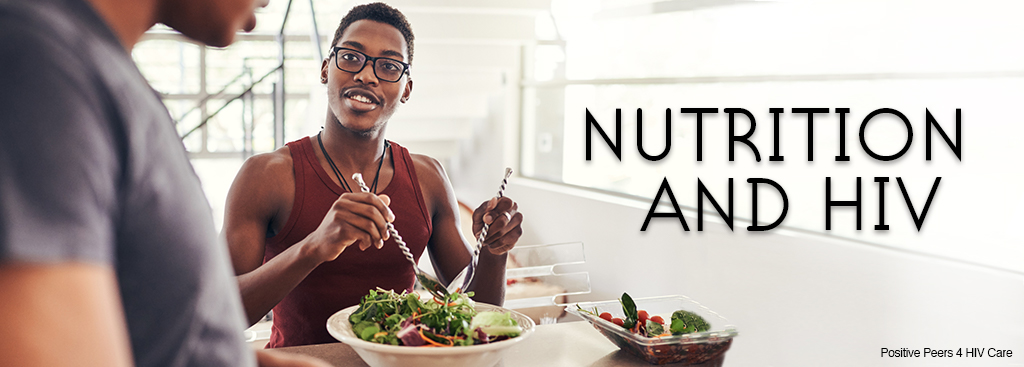
Nutrition and HIV
You already know how important it is to take care of your health when you’re living with HIV. Good nutrition helps with that! It will help improve your immune system and your overall health.
Unfortunately, living with HIV and taking HIV meds can actually cause you to have problems related to nutrition. If you get an opportunistic infection, you may even have trouble eating or swallowing. Your metabolism might change, making it easy to lose or gain weight, and your meds sometimes have side effects like nausea, diarrhea, and loss of appetite.
Practicing good nutrition makes it easier for you to keep a healthy weight, which helps your body better absorb your HIV medications.
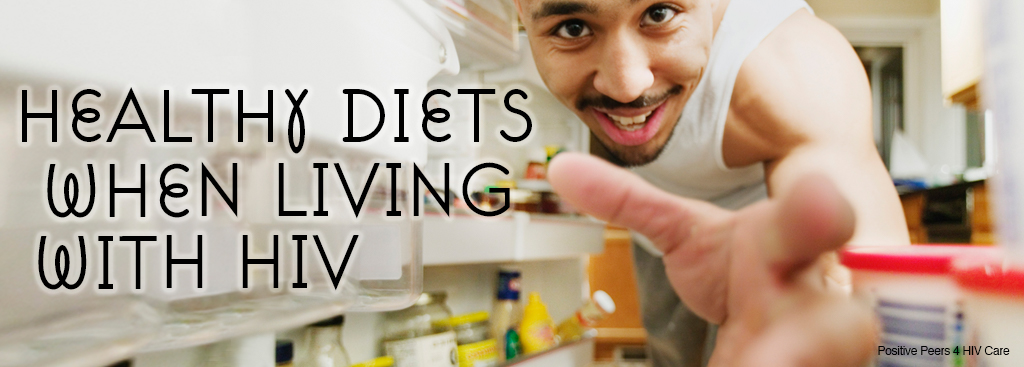
Healthy diets when you’re living with HIV
So what does a healthy diet look like? We talked a little bit before about how no single food will supply all the nutrition your body needs. To stay healthy, you need food from each of the five food groups, which are the fruit, vegetable, grain, protein, and dairy groups. Your focus should be on the variety, amount, and nutrients needed to keep yourself healthy.
Eating at least five servings of fruits and vegetables each day is necessary to keep healthy. When choosing what fruits and veggies to eat, eat a variety of colors like red, orange, and dark green. Look for dairy products that are low in fat, and try to eat proteins that are lean, like seafood and poultry. Nuts are also full of nutrients, but make sure you portion them!
It’s important to eat the right amount of food each day. Neither too little or too much food is healthy for you. Drink a lot of water to keep hydrated, and avoid or cut back on alcohol or sweetened drinks.
When you’re shopping for healthy foods and beverages, look for things with less sodium, added sugars, and saturated fat. Keep in mind that sugary drinks like soda are one of the most fattening things you can consume, and fruit juices are nearly as bad. Keep the amount you drink as low as possible.
Come join our private, stigma-free, supportive community.
Health management tools with medication & appointment reminders.
Social networking in a community conversation & private chats.
Don’t skip meals
Skipping meals is one of the worst things you can do if you’re trying to be healthy because it leads to snacking or eating large meals, which can raise your blood sugar. When your blood sugar gets raised, your fat storage increases. Gaining or losing weight is common when you’re living with HIV. It may sometimes help to track what you eat to see if your body is getting enough nutrients and calories each day.
There also have been studies that show if you want to boost your metabolism, it’s better to eat several small meals throughout the day rather than three bigger ones.
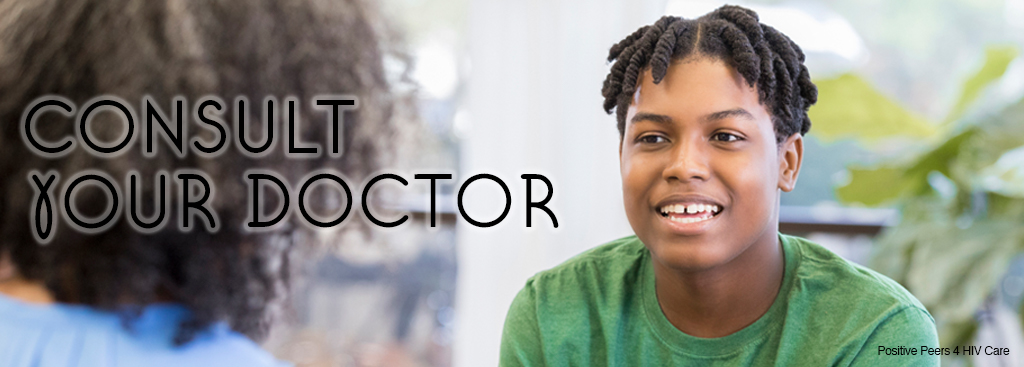
Consult your doctor
There’s a lot of info on the internet about what’s healthy and what’s not, but it can be hard to know what’s real, especially if people don’t cite their sources. This is a situation where talking to your doctor can really help. They can refer you to a dietitian who understand that each body is different and can help you make a plan that’s best for you!
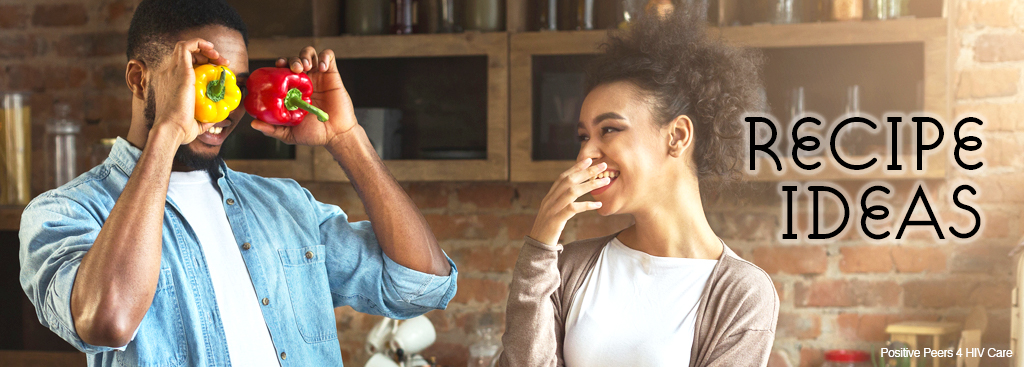
Some recipe ideas
To help you get started on your nutrition-filled journey, we found three healthy dinner recipes you’re going to love!
- Whole30 Sesame Chicken and Broccoli Rice
- Zucchini Ribbon Pasta
- Pan-Seared Salmon with Kale and Apple Salad
Do you feel hungry yet?!
Help your body thrive
It’s common to feel like you don’t have a lot of control over your own life. Something you can control is what you put in your body to keep it fueled, happy, and healthy. Eating healthy and nutritious food doesn’t have to mean eating plain lettuce and flavorless rice cakes. With a little thought and effort, you can eat tasty, healthy meals that will help your body thrive!
Related Blogs:

